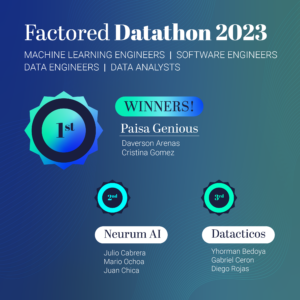We hear about AI and advancements in healthcare thanks to technology, but how exactly is artificial intelligence positively contributing to the practice and provision of healthcare services?
Recently, one of our engineers, Alejandro, worked alongside industry experts and thought leaders to help facilitate the benefits of machine learning and AI in healthcare. Together, they co-authored the paper “MedPerf: Open Benchmarking Platform for Medical Artificial Intelligence using Federated Evaluation” which dives into this very subject.
In this post, we’ll take a look at why AI models need to be deployed in healthcare, as well as the ways in which medical AI has tremendous potential to advance the industry.
The Need for AI in Healthcare
A key point of agreement for all regulatory agencies—including the US Food and Drug Administration, the European Medicines Agency, and the Central Drugs Standard Control Organisation in India—is the need for formal, large-scale validation of medical AI models.
That’s because using large and diverse datasets during model training continuously results in more accurate models. Therefore, the authors of the paper posit that:
“A new approach to leveraging diverse data can deliver consistent clinical and business value to healthcare data owners, while creating adoption incentives through lower implementation cost and lower deployment risk.”
When such models have been successfully deployed, here are some of the benefits the healthcare industry will be able to enjoy.
The Benefits of Deploying AI in Healthcare
Improves Personalized Patient Treatment
The technological innovations that can result from deploying AI in the healthcare industry are truly limitless. Take MyoSuite, for example. This embodied AI platform is a set of musculoskeletal models that applies machine learning (ML) to biomechanical control problems.
This allows MyoSuite to simulate the large number of muscles the human body contains and synthesize behaviors. Additionally, the comprehensive platform can facilitate applications with real-life implications, such as surgery, post-injury rehabilitation, ergonomics, prosthetic development, and shared autonomy assistive devices.
Reduces Costs
While creating and implementing these systems will initially come at a higher cost, they will ultimately lead to greater effectiveness through better healthcare prevention, diagnosis, and treatment; meaning they will reduce costs in the long run.
As the World Economic Forum puts it, “At a cost-effective scale, innovations such as digital advances, AI and personalized genomics can be a primary course of action, not an expensive last resort. Efficiency, then, leads to more effective healthcare.”
Put in practice, a pilot study in Finland evaluated the impact of an Intelligent Patient Flow Management System (IFPM) in streamlining patient flow to their hospital, and found that it had a significant impact on healthcare costs. Ultimately, they had a mean reduction of EUR €552,000 towards the total average service costs for 17,943 patients; a single unit cost reduction of EUR €31 per person.
Prevents Healthcare Fraud
Advanced AI-based technologies can be deployed instead of more traditional and less reliable fraud detection systems. After all, the rules, filters, and reports these outdated systems rely on to flag issues don’t always work. Why? Because healthcare fraud schemes are always changing, meaning new schemes can slip through the cracks.
Sophisticated AI, on the other hand, can keep up with today’s fraud by detecting anomalous and suspicious activity that more traditional methods might miss.
Improves Provider and Patient Experience
AI can enhance both the provider and patient experience by providing predictive medical care, allowing for more accurate diagnoses, and even motivating patients to take care of their health in the long-term.
Additionally, providers can leverage AI to improve their care by finding out the number of hours they need for specific procedures, how much care time they’re dedicating on a specific day and/or to a specific service. This can help providers optimize the actual hours worked with patients.
Similarly, healthcare facilities can use such models to determine where to put patients based on occupancy, inflow, and load, thereby streamlining the facility’s overall operational efficiency.

Introducing MedPerf
In order to unlock the potential medical AI has to offer the healthcare industry, there needs to be a systematic way in which to measure the performance of medical AI models on large-scale heterogeneous data.
That’s why Factored engineer Alejandro has worked diligently with his collaborators to build MedPerf, an open framework for benchmarking machine learning in the medical domain. MedPerf will empower healthcare organizations to assess and verify the performance of AI models in an efficient and human-supervised process, all while prioritizing privacy.
The Takeaway
AI is benefiting our daily lives—not just in the technology and commercial sectors, but also in the healthcare industry and beyond.
Thankfully, the team at Factored can help implement AI, machine learning, data engineering, data analytics and visualization, MLOps, model deployment, and more areas of expertise for your business. Our engineers work on a number of challenges in various industries—meaning there really is no AI and data science quandary we can’t solve.
If you’re a healthcare professional wondering how AI could help contribute to your services, get in touch today.






